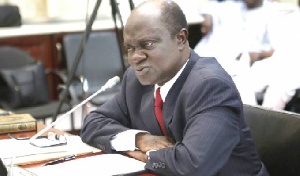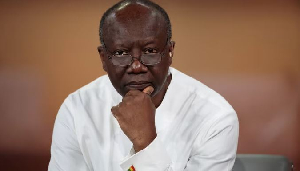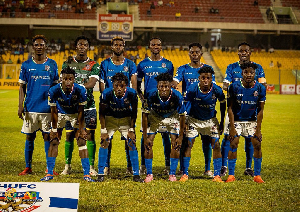The Minister designate for Planning, Professor Gyan-Baffuor, says the 40-year development plan prepared by the National Development Planning Commission (NDPC) risks violation by successive governments due to fast-changing global trends.
Professor Gyan-Baffour, who was answering questions when he appeared before the Appointments Committee of Parliament, argued that developing a long-term vision with a specific set of achievable goals would be more suitable for the country’s growth agenda.
“I think Ghana needs a long-term development vision. Ghana needs a long-term set of goals. Ghana needs a long-term perspective plan. Ghana needs a long-term view about where we want to be 40 years from now. But Ghana does not need a 40-year unqualified development plan,”
“There is nothing governments can do. So it is not a good idea to come out with such a plan. This would only lead to successive governments violating the long-term plan to see their own ideas come to fruition.
We need a vision like that of Vision 2020, we need a framework like that; but we don’t need a plan that will be so restrictive… I don’t want anything to be called a plan if it goes beyond a certain period of time.
So if governments are coming in like that, we don’t need a very long-term plan that will restrict them. They will violate it. I think we should go for a vision statement or a vison for 40 years but not a restrictive plan for 40 years,” Prof Gyan Baffuor said.
The 40-year National Development Plan for the country (2018-2057) was launched in 2015 to provide a framework for national development binding on successive governments.
The NDPC, which is headed by Dr. Nii Moi Thompson, consulted various stakeholders and considered the global Sustainable Development Goals (SDGs) in the development plan.
In line with the sustainable development goals, and to address climate change concerns, the medium-term national development objectives take into consideration the need to promote basic living standards; and adoption of the principles of green economy in the national development planning and implementation, and enhance the capacity to mitigate and reduce the impact of natural disasters, risks and vulnerability.
Consequently the policy proposals under the Ghana Shared Growth Development Agenda (GSGDA) II, 2014-2017 will focus on continued pursuit of macroeconomic stability; creating the appropriate fiscal space for accelerated investments in key priority programmes, in partnership with the private sector and sustainable exploitation of Ghana’s natural resource endowments in agriculture, minerals, oil and gas.
Other areas of focus are strategic investments in human capital, infrastructure, human settlements, science, technology and innovation to drive industrialisation, in particular manufacturing.
It will also involve strengthening the capacity for effective implementation of government policies and programmes, including the management of economic policy decision-making, and strengthening the capacity for enforcement of rules, regulations and discipline.
In 2010, government prepared the Ghana Shared Growth and Development Agenda (GSGDA) to be implemented over the period 2010 – 2013.
The GSGDA provided the basis for preparing sector and district medium term development plans for the period 2010 - 2013; preparig annual national budgets for the period 2010 – 2013 and operationalizing the President’s vision.
Consequently the strategic direction during the GSGDA, 2010 – 2013 was to lay the foundation for the structural transformation of the economy within the decade ending 2020, through industrialisation, especially manufacturing, based on modernised agriculture and sustainable exploitation of Ghana’s natural resources, particularly minerals, oil and gas.
Business News of Wednesday, 8 February 2017
Source: B&FT Online













